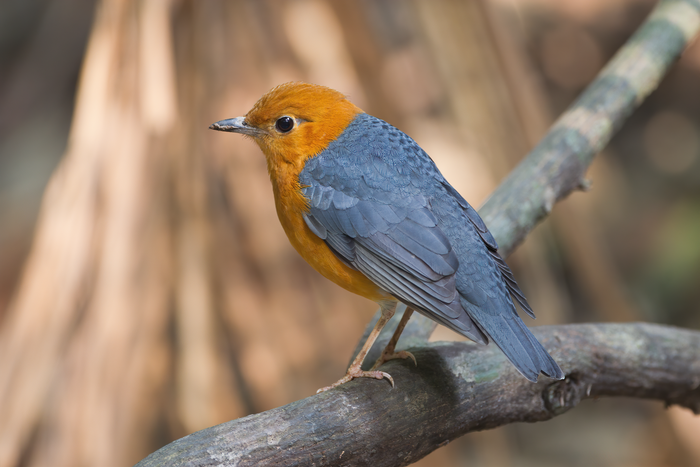Ithaca, NY—For thousands of years, people have been keeping wild birds. It is often a deeply ingrained part of the culture. One of the more recent trends to emerge from this practice is the singing contest which pits male birds against each other to impress human judges with their songs, plumage, and movement. A Cornell Lab of Ornithology examination of the scientific literature on this topic finds that bird-singing contests currently take place in at least 22 countries using at least 36 species of birds. This research is published in Global Ecology and Conservation.

Credit: J.J. Harrison
Ithaca, NY—For thousands of years, people have been keeping wild birds. It is often a deeply ingrained part of the culture. One of the more recent trends to emerge from this practice is the singing contest which pits male birds against each other to impress human judges with their songs, plumage, and movement. A Cornell Lab of Ornithology examination of the scientific literature on this topic finds that bird-singing contests currently take place in at least 22 countries using at least 36 species of birds. This research is published in Global Ecology and Conservation.
“A champion bird can gain prestige for its owner and, in some cases, bring in considerable prize money,” explains lead author Ben Mirin, a Ph.D. student at the Cornell Lab. “Today these contests drive demand in the global songbird trade, especially in Southeast Asia where more bird species are threatened by trade than in any other region of the world.”From the conservation standpoint, bird-singing contests can put pressure on wild bird populations. For example, the White-rumped Shama, Brown-headed Barbet, and the Orange-headed Thrush are among the top five most popular species for singing contests and all three of them have declining populations.
Mirin is pursuing additional research to learn now educational tools created with local people can address the threats of the songbird trade while still preserving the cultural meaning and identities tied to songbird contests.
“There are few places better suited for instilling respect for wildlife and sustainability than the classroom,” says Mirin. “Teaching conservation to young people and learning what influences their perceptions of nature can help illuminate how human-bird relationships take root early in life.”
Reference:
Benjamin H. Mirin, Holger Klinck. Bird Singing Contests: Looking Back on Thirty Years of Research on a Global Conservation Concern. 2021. Global Ecology and Conservation.
Journal
Global Ecology and Conservation
DOI
https://doi.org/10.1016/j.gecco.2021.e01812
Method of Research
Literature review
Subject of Research
Animals
Article Title
Bird Singing Contests: Looking Back on Thirty Years of Research on a Global 2 Conservation Concern
Article Publication Date
12-Oct-2021




